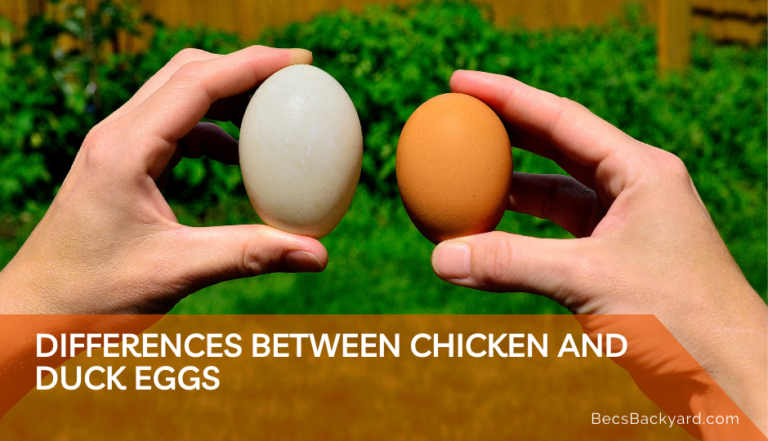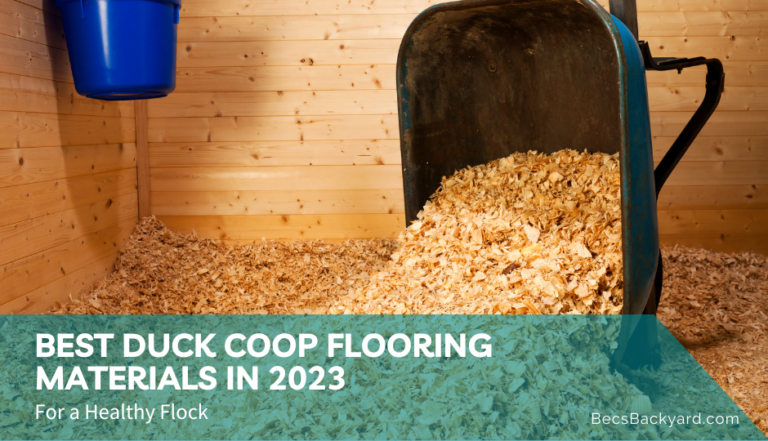7 Best Duck Breeds for Egg Laying
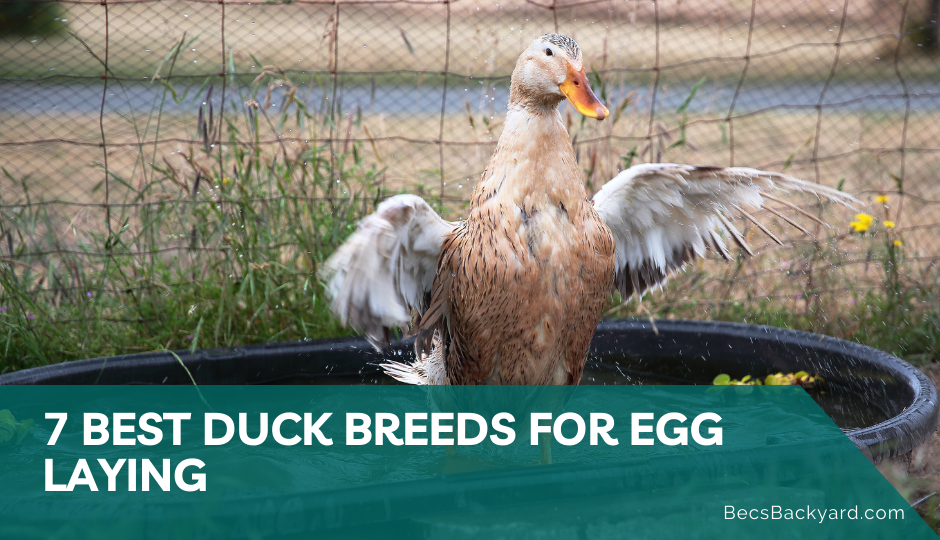
Duck eggs are becoming increasingly popular in the culinary world due to their rich flavor and higher nutrient content than chicken eggs. If you’re considering raising ducks for their eggs, it’s important to choose the right breed. Some breeds are more prolific layers than others and can produce up to 300 eggs per year. This article looks at the 7 best duck breeds for egg laying
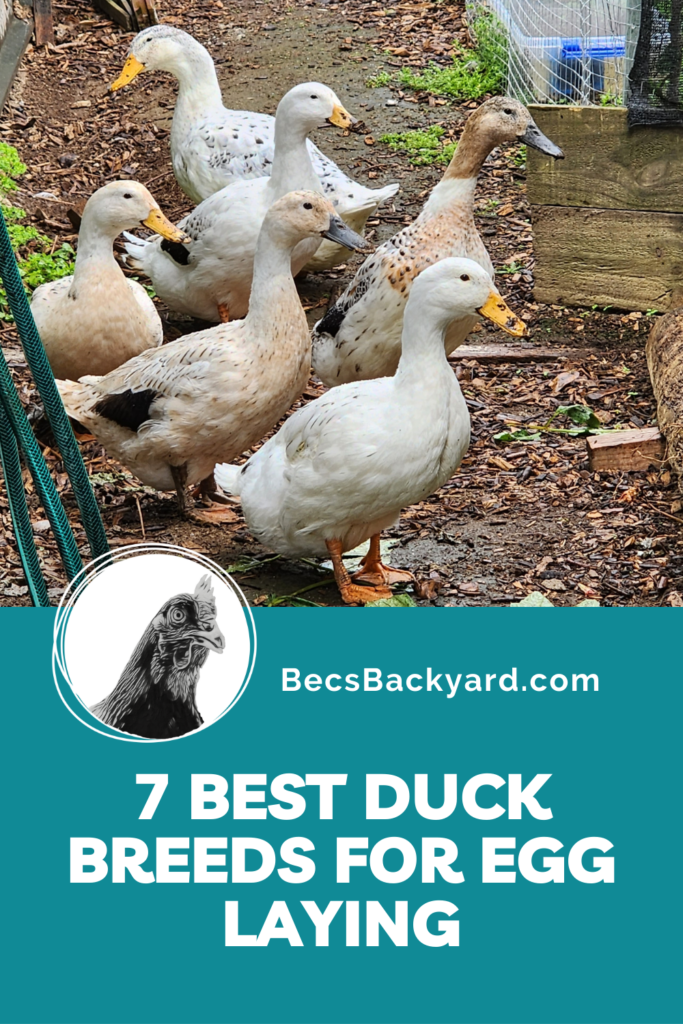
Understanding Duck Breeds
When it comes to selecting the best duck breeds for egg production, understanding the characteristics of different breeds is key. Here are some important factors to consider:
Size
Ducks come in a variety of sizes, from small bantam breeds to larger breeds like the Muscovy duck. Smaller breeds tend to lay smaller eggs, while larger breeds often lay larger eggs. However, there are exceptions to this rule, so it’s important to research each breed individually.
Egg Production
Some duck breeds are better egg layers than others. Khaki Campbell, Pekin, Aylesbury, Indian Runner, and Silver Appleyard ducks are all known for their high egg production rates. However, keep in mind that egg production can vary based on factors like age, diet, and environment.
Temperament
Different duck breeds have different temperaments, so it’s important to choose a breed that fits with your lifestyle and goals. Some breeds, like the Muscovy duck, are quieter and more docile, while others, like the Indian Runner duck, are more active and curious.
Purpose
Finally, consider the purpose of your duck flock. If you’re primarily interested in egg production, choose a breed that is known for its egg-laying abilities. If you’re interested in meat production, look for a breed that is known for its meat quality. And if you’re interested in showing ducks, choose a breed that is known for its appearance and conformation.
By considering these factors, you can choose the best duck breed for your needs and ensure a successful and enjoyable experience raising ducks for eggs.
Best Duck Breeds for Egg Laying
When it comes to raising ducks for egg production, choosing the right breed is crucial. Here are some of the best duck breeds for egg laying:
Ancona
The Ancona duck is a great choice for egg production. They are hardy and adaptable, and can lay up to 210 eggs per year. Ancona eggs are known for their unique color pattern, with white eggs speckled with black or blue spots.

Indian Runner
The Indian Runner duck is a popular breed for both meat and egg production. They are known for their upright posture and distinctive running gait. Indian Runner ducks can lay up to 300 eggs per year, making them one of the most productive duck breeds.

Khaki Campbell
The Khaki Campbell duck is a highly productive breed that can lay up to 300 eggs per year. They are also known for their calm and friendly disposition, which makes them a great choice for backyard flocks.

Pekin
The Pekin duck is one of the most popular duck breeds for both meat and egg production. They are large and hardy, and can lay up to 200 eggs per year. Pekin eggs are also known for their large size and rich flavor.

Silver Appleyard
The Silver Appleyard duck is a beautiful breed that is highly productive. They can lay up to 290 eggs per year, and are known for their large size and flavorful eggs. Silver Appleyard eggs are also a beautiful shade of blue-green.
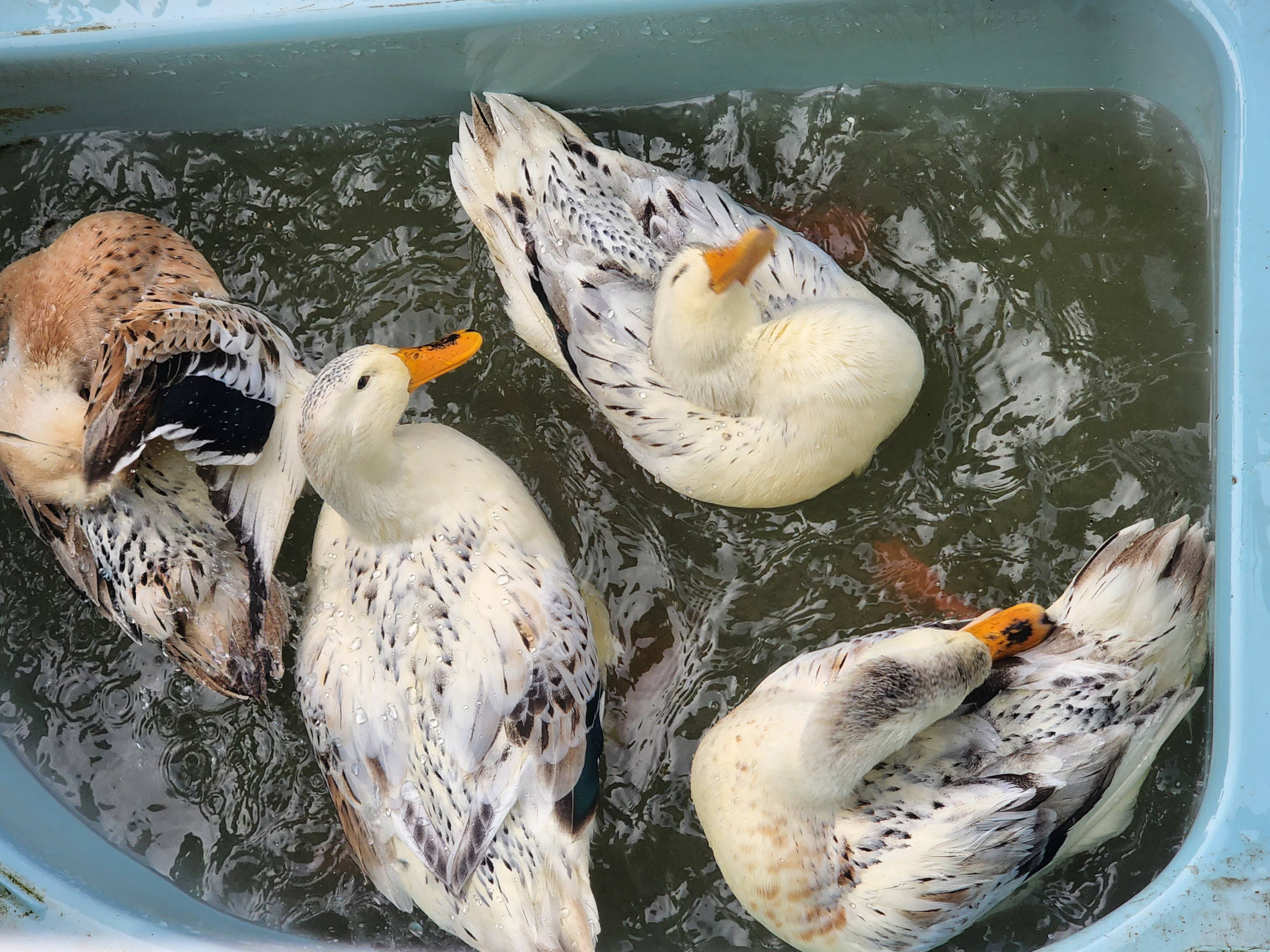
Swedish
The Swedish duck is a hardy and adaptable breed that is great for egg production. They can lay up to 200 eggs per year, and are known for their excellent foraging abilities. Swedish eggs are also known for their rich flavor and deep yellow yolks.

Welsh Harlequin
The Welsh Harlequin duck is a relatively new breed that is gaining popularity for its excellent egg production. They can lay up to 280 eggs per year, and are known for their beautiful feather pattern. Welsh Harlequin eggs are also a beautiful shade of blue-green.

Overall, when it comes to choosing the best duck breed for egg laying, there are many great options to choose from. By considering factors such as egg production, temperament, and size, you can find the perfect breed to meet your needs.
Factors to Consider When Choosing Duck Breeds
When choosing duck breeds for egg laying, there are several factors to consider. The following sub-sections outline some of the most important factors to keep in mind.
Climate Tolerance
Different duck breeds have varying degrees of tolerance to different climates. Some breeds are better suited for colder climates, while others thrive in warmer environments. It is important to consider the climate in which the ducks will be raised and choose a breed that can tolerate that climate. For example, Muscovy ducks are known for their ability to tolerate cold temperatures, while Indian Runner ducks are better suited for warmer climates.
Temperament
The temperament of a duck breed can also be an important factor to consider. Some breeds are more docile and friendly, while others can be more aggressive and difficult to handle. If the ducks will be raised in a backyard setting, it may be important to choose a breed that is more docile and less likely to cause problems with neighbors or other animals. For example, Khaki Campbell ducks are known for their friendly and docile temperament.
Laying Frequency
One of the most important factors to consider when choosing duck breeds for egg laying is their laying frequency. Some breeds are more prolific layers than others, and can lay up to 300 eggs per year. Other breeds may only lay 100-150 eggs per year. If the goal is to maximize egg production, it is important to choose a breed that is known for its high laying frequency. For example, the Khaki Campbell breed is known for laying up to 300 eggs per year.
Egg Size and Color
Another factor to consider when choosing duck breeds for egg laying is the size and color of the eggs they produce. Some breeds produce smaller eggs, while others produce larger ones. Additionally, some breeds produce eggs with unique colors, such as blue or green. If the goal is to produce eggs for sale or for aesthetic purposes, it may be important to choose a breed that produces eggs of a certain size or color. For example, the Ancona breed is known for producing eggs with unique speckled patterns.
In summary, when choosing duck breeds for egg laying, it is important to consider factors such as climate tolerance, temperament, laying frequency, and egg size and color. By taking these factors into account, you can choose a breed that is well-suited for your specific needs and goals.
Caring for Egg Laying Ducks
When it comes to caring for egg laying ducks, there are three main areas to focus on: feeding, housing, and health care.
Feeding
Ducks need a balanced diet to lay healthy eggs. A good commercial duck feed is a great option, as it contains all the necessary nutrients. Ducks, like chickens can work a treadle feeder and that is our recommendation to reduce food waste and pests. It is also important to supplement the feed with fresh greens and vegetables to keep the ducks healthy and happy. Some good options include kale, spinach, and peas.
It’s also important to provide ducks with clean water at all times. Ducks need water to digest their food properly and to keep their bills clean. A shallow dish or container that’s easy to clean is ideal.
Housing
Ducks need a safe and comfortable place to lay their eggs. A good duck house should be dry, well-ventilated, and predator-proof. The house should also have a nesting area with soft bedding material, such as straw or wood shavings.
Ducks also need access to a clean and secure outdoor area where they can exercise and forage for food. The outdoor area should be fenced to keep predators out and should have a shallow pool or pond for the ducks to swim in.
Health Care
Ducks are generally hardy birds, but they can still get sick. It’s important to keep an eye on your ducks and watch for any signs of illness, such as lethargy, loss of appetite, or diarrhea.
Regularly cleaning the duck house and changing the bedding material can help prevent the spread of disease. It’s also a good idea to provide ducks with a dust bath area, as this can help prevent parasites.
In addition, ducks should be vaccinated against common diseases, such as duck viral enteritis and avian influenza. A veterinarian who specializes in poultry can provide more information on vaccination schedules and other health care needs for ducks.
Overall, caring for egg laying ducks requires attention to their basic needs for food, shelter, and health care. With proper care, ducks can provide a steady supply of delicious and nutritious eggs.
Frequently Asked Questions
What is the average number of eggs laid per year by egg-laying ducks?
The average number of eggs laid per year by egg-laying ducks varies depending on the breed. Some breeds can lay up to 300 eggs per year, while others lay around 150 eggs per year.
Which duck breed is known for laying the most eggs?
The Khaki Campbell duck is known for laying the most eggs. On average they can lay up to 300 eggs per year, making them a popular choice for commercial egg production.
What are the characteristics of a good egg-laying duck breed?
A good egg-laying duck breed should be able to lay a large number of eggs per year, have a calm and docile temperament, and be easy to care for. They should also be able to withstand different weather conditions and have good feed conversion rates.
What are some popular dual-purpose duck breeds that are good for both meat and eggs?
Some popular dual-purpose duck breeds that are good for both meat and eggs include the Pekin, Rouen, and Muscovy ducks.
How long do ducks typically lay eggs for?
Ducks typically lay eggs for around 2-3 years, depending on the breed and individual duck. After this period, their egg production will start to decline.
What are some factors to consider when choosing a duck breed for egg production?
When choosing a duck breed for egg production, it is important to consider factors such as the breed’s egg-laying abilities, temperament, size, and feed conversion rates. It is also important to consider the climate and environment where the ducks will be kept, as some breeds are better suited to certain conditions than others.
Best Duck Breeds for Egg Laying : Average Egg Production per Year
Here are some popular duck breeds along with their average egg production numbers per year. Please note that these figures represent average egg production and can vary depending on factors such as individual duck health, nutrition, environmental conditions, and management practices.
| Breed | Average Egg Production per year |
|---|---|
| Khaki Campbell | 300-325 |
| Indian Runner | 250-300 |
| Magpie | 220-280 |
| Welsh Harlequin | 240-280 |
| Pekin | 200-250 |
| Cayuga | 100-150 |
| Rouen | 35-125 |
| Muscovy | 60-120 |
| Swedish | 120-150 |
| Buff | 150-180 |
| Silver Appleyard | 200-280 |
| Ancona | 180-220 |
Conclusion
When it comes to selecting the best duck breed for egg-laying purposes, there are a lot of factors to consider. While all ducks will lay eggs, some breeds are more prolific layers than others. The Khaki Campbell is a popular choice for those who want a high number of eggs per year, with an average of 250-340 eggs per year. Other top-performing breeds include the Indian Runner, Welsh Harlequin and Silver Appleyard.
It’s important to remember that not every individual duck will be a high producer, so it’s important to do your research and find a reputable breeder. Additionally, factors such as diet, environment, and age can all impact egg production. Providing your ducks with a healthy and balanced diet, a clean and comfortable living space, and proper care can all help maximize egg production.
When selecting a duck breed for egg-laying purposes, it’s also important to consider factors such as temperament, size, and noise level. Some breeds may be better suited for small backyard flocks, while others may be better suited for larger commercial operations. It’s important to choose a breed that fits your specific needs and preferences.
Overall, there are many great duck breeds to choose from when it comes to egg production. By doing your research and selecting the right breed for your needs, you can enjoy fresh and delicious duck eggs all year round.

